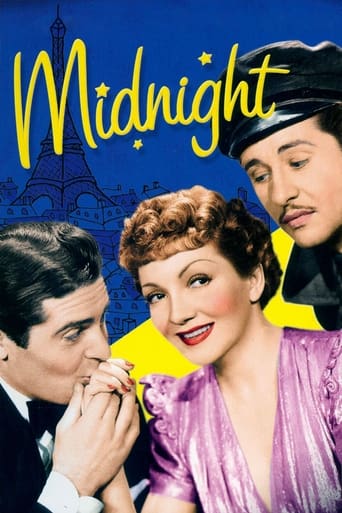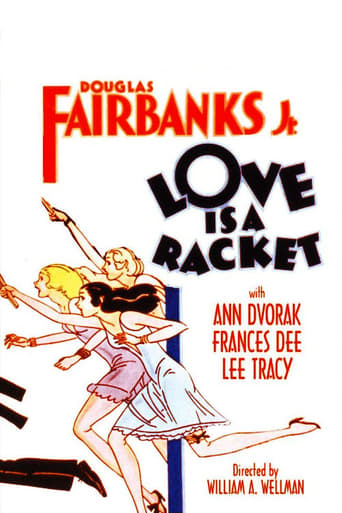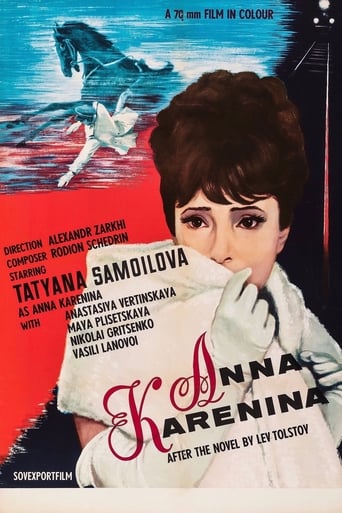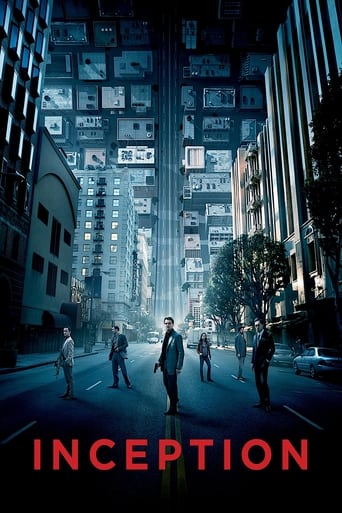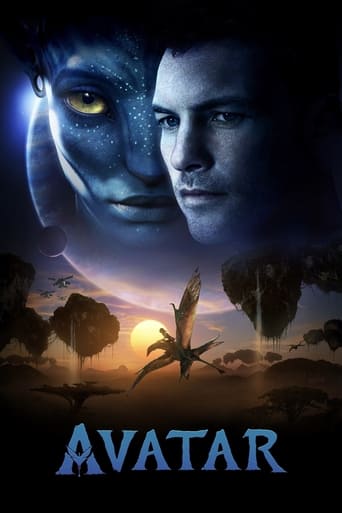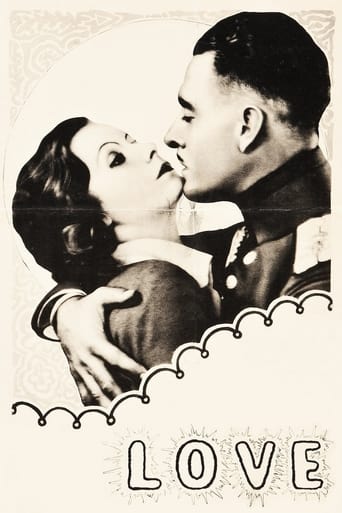


Love
In Imperial Russia, Anna Karenina falls in love with the dashing military officer Count Vronsky and abandons her husband and child to become his mistress.
-
- Cast:
- John Gilbert , Greta Garbo , George Fawcett , Emily Fitzroy , Brandon Hurst , Philippe De Lacy , Mathilde Comont


Similar titles

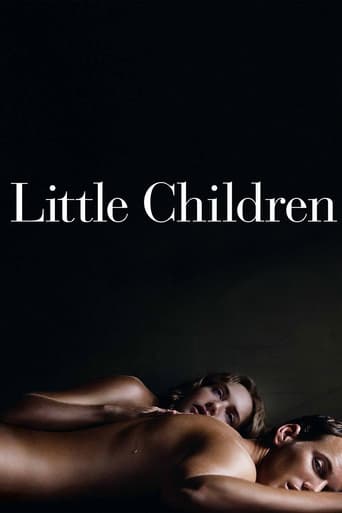
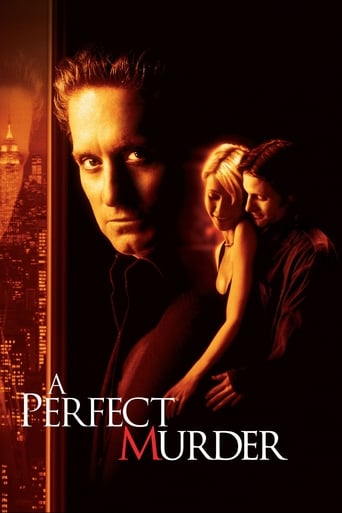
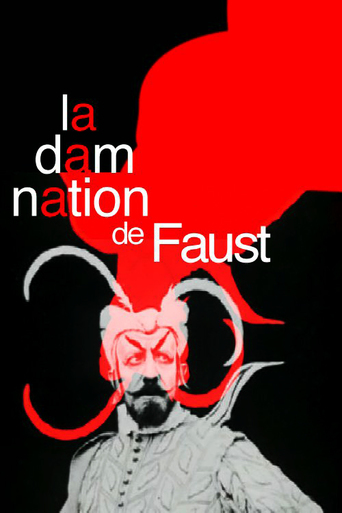
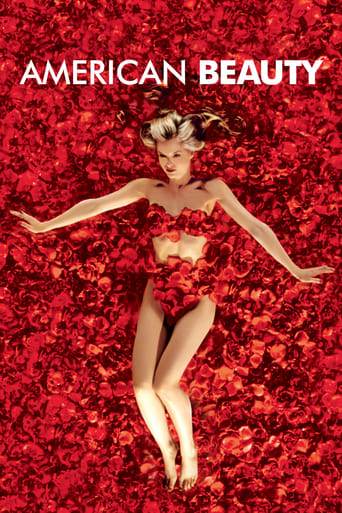
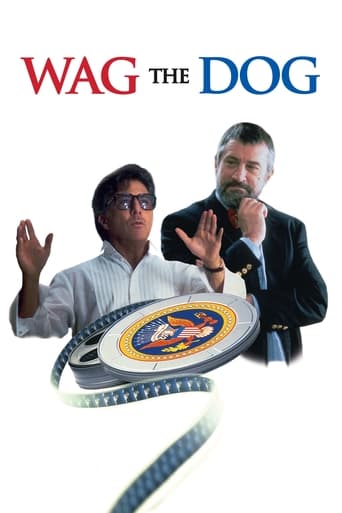
Reviews
The film may be flawed, but its message is not.
It's the kind of movie you'll want to see a second time with someone who hasn't seen it yet, to remember what it was like to watch it for the first time.
There are moments in this movie where the great movie it could've been peek out... They're fleeting, here, but they're worth savoring, and they happen often enough to make it worth your while.
The film never slows down or bores, plunging from one harrowing sequence to the next.
Anyone who thinks silent movies can't convey the realistic passion of love should see this pairing of Garbo and John Gilbert.Their chemistry is palpable and the loss Garbo suffers in terms of her son is believable without plunging into bathos.I was fortunate to see a version of this film on TCM that provided both endings -- the puerile have-your-cake-and-eat-it-too version for American audiences and the bleak, moralistic one that that was distributed for more adult viewers internationally.It's shocking that Americans were believed to require such pabulum. But when you think about it we remain a childish, head-in-the-sand society in many ways. It's just rare to have the us-vs.-them contrast shoved in one's face like this...The performances in this film are stellar. I'm ashamed to say -- and American enough to admit -- that I haven't read "Anna Karenina." Now at least I wish to.I love when movies help to bring my own life into clearer focus. And this one has. Vronsky: "To see you and not touch you...to love you and not have you...No, we'll never see each other again..." This film brings out a terrible truth in life, as acted out by the cold and passionless Karenin. "You two will destroy each other." He needn't have dirtied his hands or mussed his hair and he knew it. Powerful!
Love is a better than you expect silent film romance.There are a few remarkable qualities a film lover will encounter in Love. Foremost is how little the emotional impact of Love has faded over the years (relative to other silent films). Often silent films are enjoyable because they have aged and we can delight in their quaint or old-fashioned sensibility, laughing while comparing how much movies and pop culture have changed. Love, however, has largely maintained its original affect, which is particularly amazing given it is a sentimental tear-jerker romance, a genre that ages, perhaps, lest well. These eighty years later we still can related to the feelings of both Captain Count Alexei Vronsky (John Gilbert) and Anna Karenina (Greta Garbo) while we root for their love. Of course there are plenty of moments, originally dramatic, that are now laughable, but over all the film has age well. (Most odd is the depiction of Anna and her son's love. Today it plays with disturbingly incestuous overtones. I do not know how it played in 1927.)The second striking feature, also related to how well this film has aged, is how beautiful Greta Garbo appears. Like many elements in silent films, standards are beauty may not translate across generations. Actors and actresses considered amazingly beautiful in the teens and twenties may no longer satisfy the modern movie star equivalent. Garbo, however, is still strikingly, obviously beautiful. The final striking feature is a bit of trivia there are two endings to Love, an American ending and a European. The difference in endings is striking in that the same divergent choices would probably be made today. The European ending is bleak, tragic and emotionally effective, as Anna steps in front of the rushing train rather than live without her lover and son. Further, it is the ending in the original text, Leo Tolstoy's Anna Karenina. The American ending is predictable, saccharine and laughable. Americans in 1927, like American today, want their romances to end with all the loose ends tided up, all the obstacles overcome, and all our couples marring to live happily ever after.Story Synopsis: Love is based on Leo Tolstoy's Anna Karenina. Anna Karenina meets Captain Count Alexei Vronsky in a terrible blizzard late one afternoon and he helps her to shelter. He is instantly smitten, but she rejects him. Vronsky helps Anna back to the Czarist court and her husband, Senator Alexei Karenina. Vronsky too is part of the court, the top assistant to the Grand Duke. Vronsky and Anna continue to meet at various events: official functions, dances, wolf hunts. Eventually they fall hopelessly in love. The court is abuzz as it is obvious to all who see Vronsky and Anna that they are attracted to each other. Karenina cold and authoritarian, warns Anna of court gossip and commands she at least be inconspicuous and avoid public scandal. Anna and Vronsky try a number of times to stop seeing each but their love is overpowering. Eventually they abscond to Italy, rejecting their former lives to live as lovers. Anna, however, cannot bare being away from her son. When she returns Karenina refuses to allow Anna to visit her son again. Further, Anna finds out that Vronsky is going to be dismissed from his military post because of their affair. Realizing how awful that would be for Vronsky she makes a deal with his commander: if she leaves St. Petersburg forever Vronsky will retain his post. She decides to leave on the next train, sacrificing her happiness for Vronsky's. But Anna cannot bear the thought of leaving both her lover and her adored son. Instead of riding her train into exile she steps in front of it to her death. The ending is sudden, shocking, and effective. A surprisingly poignant ending to a film of pleasant surprises. American Ending: Years later Vronsky happens upon Anna and her son. Vronsky has maintained his high military post, Anna's husband is dead, mother and son are together, Anna and Vronsky still love each and will surely soon marry now that they have re-found each other. And we have "happily ever after'.
With a mix of modern dresses for the ladies and typical regimental outfits for the men, this adaptation of ANNA KARENINA is quite different from the novel and other film versions in a few ways. After deserting her family for Vronsky, he does not tire of and desert her - he stays faithful - it is she who voluntarily gives him up to prevent his being thrown out of the Guards and thereby saves his name from disgrace - her suicide is to save him, rather than being an act of despair.Anna's completely "losing it" when his horse falls in a race - in front of society - is her downfall as it exposes their affair to the world, after which society must wreak its revenge. Without this "flaw," things might have gone otherwise for her. The finest scenes are between Garbo and Philippe de Lacy, who plays her son. Their two scenes are so full of playful mother-son love as to prove to better than Garbo's scenes with Gilbert. Indeed, there is none of the passion or obsession here that the two displayed earlier that year in FLESH AND THE DEVIL. de Lacy is a beautiful young actor and a "natural." One of the annoying things about Vronsky is his inability to understand this love - he selfishly wants Anna all to himself - the cad!Garbo's farewell scene with Gilbert, she knowing she'll never see him again and he oblivious to this fact, is also quite well done.The TCM print is flawed by having a live audience reacting poorly on the soundtrack, although the newly commissioned score by Arnold Brostoff is quite fine. This soundtrack addition occurred in 1994 and seems the only one accompanying prints of the film currently. There is a beautifully photographed waltz with Garbo and Gilbert - oft seen in compilations and reminiscent of his waltz scenes with Mae Murray in THE MERRY WIDOW.All in all, worth catching for Garbo, but the two later remakes of the work are much better.
(Possible SPOILERS) I'm glad to see this forgotten film receiving praise here from fans; I echo Silntfan's sentiments about Gilbert--this is the movie that made me suddenly realize he was a good actor. He didn't seem like the same actor from "Flesh and the Devil" and "A Woman of Affairs." My favorite silent Garbo film is still the light, stylish "The Kiss," but "Love" impressed me greatly.By the way, various sources (Maltin's book, the TCM host) claim this 1927 version is "modern". Yet it's set in Czarist Russia, which is not modern for 1927! In fact, nothing in the film indicates it's not a 19th Century setting--they don't drive cars, they don't go to movies, they don't have telephones, etc. You might argue that Garbo's fashions are modern, but that just means they're anachronistic for the Czarist era, not that the whole setting is modern. What's really modern is the ending, and that's what I want to praise.It came as a breathtaking shock to me, since I had no prior knowledge of it. The TCM print ends with a happy resolution. Then we see a notice that this was the American ending, and next comes the tragic ending shown in Europe. This film's tragic ending of Anna K (well-known) is abrupt and unconvincing (unlike every other scene in this film, so well-directed by Edmund Goulding).At the risk of being a literary heretic, I must say the happy ending is better! I know we're supposed to sneer at Hollywood's desecration of great literature, and we're supposed to be swept up in the romantic tragedy of sacrifice, how noble or self-pitying it is. But frankly, the classic ending is a revolt against reason. In fact, it's a conventional moralistic punishment for a supposedly strong heroine. The happy ending, in which people actually behave with sense, is subversive because Anna gets to have her adulterous beefcake and eat it too. Call it a crass commercial decision if you will, but it's exactly what Tolstoy couldn't have published in the 19th Century, and what Hollywood couldn't have done after the Production Code crackdown in 1934--which is probably as much why the 1935 remake is tragic as any special allegiance to Tolstoy. The high 20s was the right window to tell the story sensibly.



